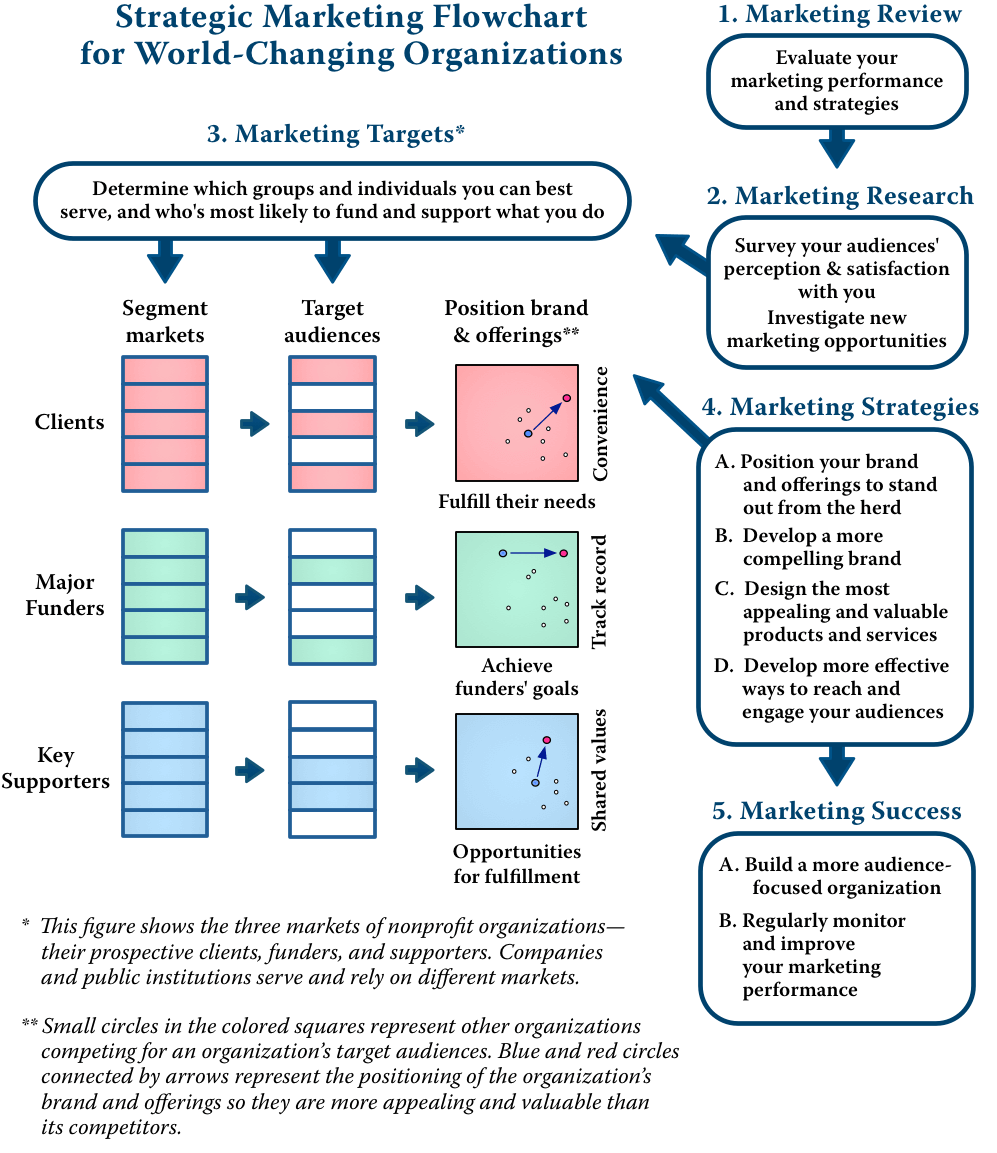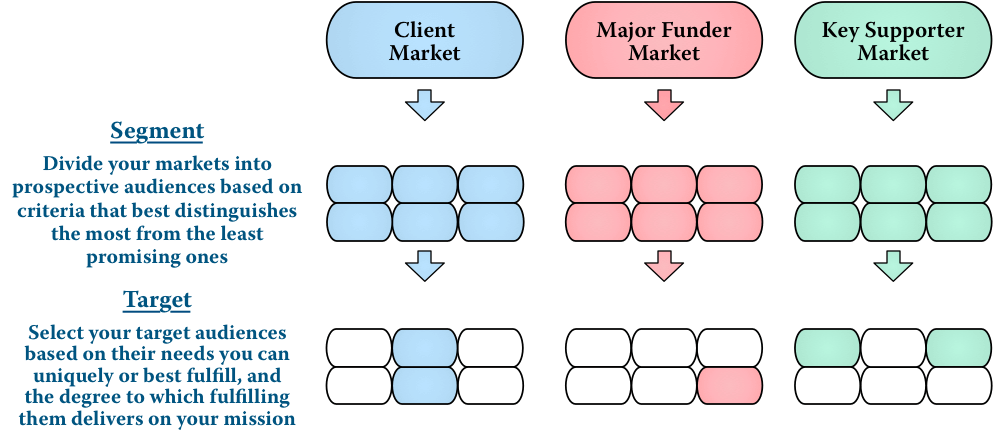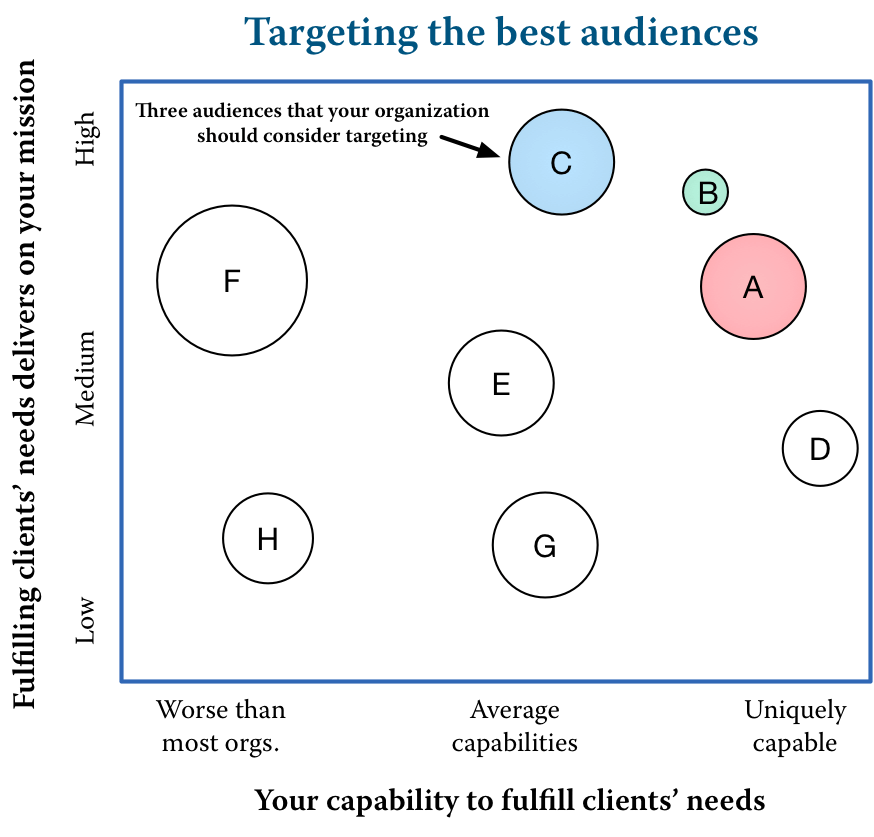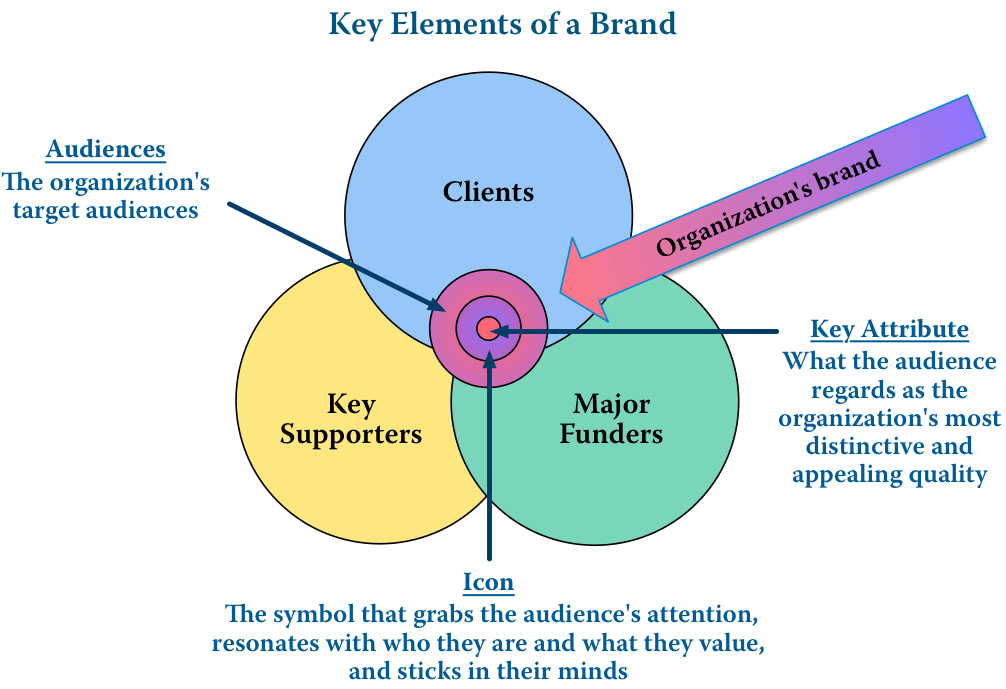Strategic marketing
Most people equate marketing with selling. But strategic marketing eliminates the need to sell. It is a systematic way to better understand, engage, and serve those who determine your success. And branding is its most potent tool. Our free Strategic Marketing Guide and Workbook describe how to attract more clients and supporters—and better fulfill their needs allied to your mission.
In a nutshell, strategic marketing is about:
Targeting the best audiences and individuals to advance, fund, and strengthen support for your mission and work.
Positioning your organization and offerings as different from and more appealing than your competitors.
Building a more distinctive and compelling brand.
Offering the most appealing and valuable products and services.
Employing the most effective marketing communications to reach and engage your audiences.
And perhaps most importantly, building an audience-focused organization.
Our strategic marketing model
The first strategic marketing model for world-changing organizations is on the right. We encourage you to consider its five broad steps starting with the marketing review first. Then read the actions inside the boxes below the title of each step. Finally, examine the colored boxes at the lower left to see how segmenting your markets can lead to targeting the best audiences and positioning your brand and offerings so they’re more appealing and valuable than those of your competitors.
Don’t worry if you don’t understand the entire model We’ll explain more of it below and all of it in our Strategic Marketing Guide. So focus on its general flow instead of the details.
How to select
your target audiences
The figure on the left shows how a nonprofit could use segmentation and targeting to choose the best groups to market to (its target audiences). Most nonprofits have three markets: clients, funders, and supporters. The worst marketing strategy is almost always mass marketing: a shotgun approach to market to everyone but appeal to no one. Though they serve different markets, world-changing companies and governmental agencies should use this same segment-and-target approach in their strategic marketing.
More on selecting your target audiences
Often your choice of client audiences is a balance between your capability to fulfill their needs with how serving them delivers on your mission. The figure to the right illustrates how different audiences vary on these two factors. The three colored ones in the upper right are the best audiences to target.
Branding
Cowboys brand their cattle to separate their herd from others on the open range. Organizations do the same thing. A good brand distinguishes your organization from other organizations in its field and highlights what your intended audiences find most compelling about it. Branding recently emerged as the most powerful marketing strategy. Naomi Klein, a harsh critic of corporate branding, attributes the recent rise of corporate wealth and influence to branding in her book, No Logo: No Space, No Choice, No Job.
We believe it’s long overdue for world-changing organizations to harness the power of branding to make the world a better place. It almost seems as if they’ve conceded the right to use branding to commercial enterprises that use it to convince people to buy things they neither need nor will make them happy. Why aren’t more values-driven organizations separating themselves from the herd of organizations with similar-sounding names and missions through distinctive and compelling brands? Isn’t it time for your organization to stand out from the herd?
Building such a brand often takes place in the context strategic marketing—especially within targeting and positioning. Without this knowledge, your brand is likely to be mere window dressing. Our Branding Guide, particularly when paired with our Strategic Marketing Guide, describes branding in the broader context of strategic marketing. The figure on the left dissects the elements of a brand for a non-profit whose success depends on attracting clients, funders, and supports.
We advocate focusing your brand on the principal element of your organization that your audiences find most appealing—like an archer taking aim at a target. Unfortunately, many brands are like a caveman swinging a bludgeon—taking broad whacks at anyone who might be remotely interested in his organization. Trying to appeal to everyone ends up attracting no one.







